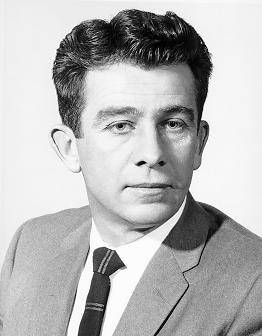
But the use of past tense verbs in connection with Bob is an error. He is in his 91st year, and very much with us and “it” – the world of events and ideas that is the enduring subject of the great conversation of the thinking and caring classes.
We will be adding from time to time, some samples of his thought to our website, for the continued delight of his very many students and admirers, and as an reminder for us all of the intellectual capital that he and the other founders provided for our sustenance. We have been living off of that capital for decades, adding to it in the spirit of principle over impulse, thought over habit, and discussion over partisan war-cries.
Installments:
- Democracy, Education and Philosophy:This first installment is a series of short, 1960′s CBC broadcasts which addressed the fundamental problem of political philosophy: why should we obey the law? Obey out of simple expedience, bowing to power to avoid punishment? Or out of civic virtue, as the political form of morality commands us? And if it is to be democracy instead of anarchism, what do we do in the face of injustice?
The series offers the spectacle of two powerful minds – Hobbes and Rowan – wrestling with a key concern of responsible civil libertarians: how can we resolve a civil obligation to respect and obey the law with our civil duty to dissent and act when laws are unjust? How do we conduct life as a grownup, wide-awake citizen?
Entertaining enlightenment in easy installments. Read the full post here.
- Conscientious Objection: This second installment is an examination of the phenomenon of conscientious objection. Not, we rush to qualify, an examination undertaken in the manner of political science, but unabashedly, and tenaciously, in the spirit of political philosophy.
Most civilized polities provide a formal, legal space for those who solemnly maintain that they cannot conscientiously participate in any activity that involves the use of violence against other human beings. But why? Why do states provide such an exemption from service? Is it a case of unequal, special pleading on the part of the objectors? A convenient way for the community to deal with a vexing – though marginal – irritant? Or, perhaps, mere toleration of an admirable – though quixotic – minority?
In this essay – one of Professor Rowan’s most profound – he turns what appears to be a marginal political phenomenon into a philosophical key to the grand question of rule of law versus the sovereignty of individual conscience; and ultimately to the deepest character and purpose of the state.
A tour de force. Read the full post here.
- The Retreat from Politics: We might be tempted to think that mistrust of politicians and politics is something new – or at least particularly marked in our place and time. Some of our elected and appointed officials seem tragically susceptible to fits of kleptomania. And when they are not lining their private nests with public feathers, they are found either “mis-speaking”, or forgetting today what they solemnly promised yesterday. The actors bring the very activity of governing into disrepute.But none of this is new, and in his 1970 speech to the Vancouver Foundation, Bob Rowan attacks the consequent retreats from politics – they come in several forms (even civil rights activism can become one of them) – as a withdrawal from the condition of full human adulthood. Strong stuff. Read the full post here.
- Guide to Plato’s The Republic: Why democracy? Do we really believe that everybody – literally, everybody – is equally endowed with the wisdom, selflessness, energy, and courage needed to govern well? Athens was, famously, the first democratic city state; and, infamously – goaded on by a band of fundamentalist demagogues – voted to execute Plato’s teacher, Socrates, on a bogus charge of impiety. The Republic is Plato’s payback for that, and remains, some 25 centuries on, the most sustained, cogent, and penetrating critique of democracy in our tradition. Professor Rowan – UBC’s star civil libertarian – gave it a starring role in his teaching. Not, as one might suppose, to knock down a straw man, and demonstrate the inevitability of democracy; but rather to challenge every comfortable certainty his students brought to his packed classrooms.Not that Rowan takes it easy on Plato – read and see for yourself. This guide to The Republic is the work of a teacher at the height of his powers. And that is not the power to astonish, or entertain, or even to innocently inform: it is the power to lead reasonably prepared minds in the direction of lasting personal insight. The highest goal of higher learning. Read the full post here.
- What should a university be? How must it conceive of its educational mission, and go about achieving it?”An invitation to serious discussion of these questions at the faculty club risks spilled drinks and broken furniture. Bob Rowan was one of the most thoughtful and consistent participants in this never ending dust-up, with an answer that goes to the heart of any “purposive” account of civil liberties and rights. Whatever else the university legitimately does, its educational mission – in a democracy – is the preparation of the responsible minds of a deliberative citizenry.This speech, delivered by Bob on the 25th anniversary of the Arts One program at the University of British Columbia, helps explain… Read the full post here.
